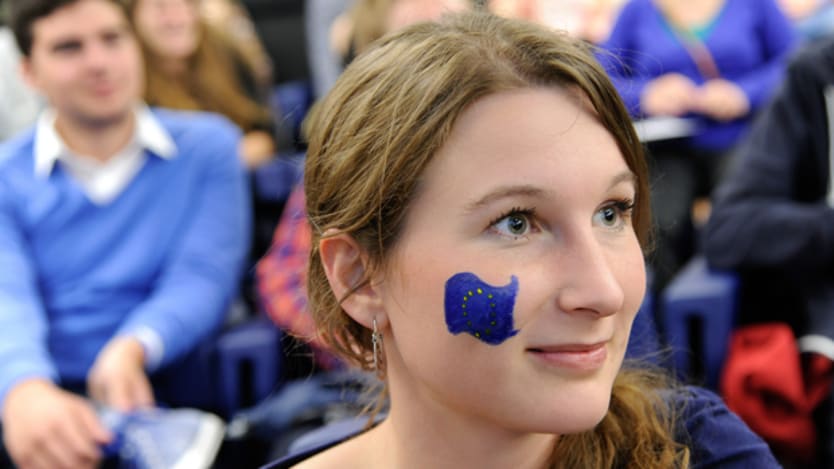
What Irish statesman and philosopher Edmund Burke wrote in the 18th century still holds true for young men and women and children across the world today.
“Tell me what are the prevailing sentiments that occupy the minds of your young men, and I will tell you what is to be the character of the next generation.”
Their perception of the world around them and their place in it will determine the extent to which they get involved in activities aimed at change and progress, and how successful their efforts can be.
In developing countries, the preoccupations of young people concern many of their basic needs and those of their parents, their families and immediate communities — food security, access to health care, water and energy supplies, freedom from warfare and instability, the right to education and schooling, and future employment prospects.
See more stories from #YouthWill Embrace Learning:
● #YouthWill launches to recognize global development leaders
● How #YouthWill affect change: Voices from the Youth Assembly
● 3 ways to improve education worldwide
● I want to make it, I want to go to high school
● How soccer saved me
● The world is connected, but some still wait for a plug
● MOOCs to the rescue?
● 5 apps to improve literacy
● Microsoft: Technology is a critical enabler for youth
Some of these concerns are shared, to varying degrees, by young people in developed countries, although their attention may be less focused on acute day-to-day personal needs. I was encouraged by the findings of the European Commission's recent special Eurobarometer report on citizens' views on development, cooperation and aid. These showed that young people in the European Union between the ages of 15 and 24 are more likely than their elders to think it is important to help people in developing countries, more likely to think the EU should increase development aid beyond promised levels, and more optimistic about the impact that individual actions can have in helping developing countries.
Listening to the views, hopes — and fears — of young people is essential in defining the development agenda for the years and decades to come. 2015 is the European Year for Development, with three key objectives — informing EU citizens about development cooperation and its results; fostering direct involvement, critical thinking and active interest; and raising awareness of the benefits of development cooperation. Clearly, young people in the EU are a prime focus of the activities that are being undertaken by the European Commission and the member states to ensure that these aims are fulfilled. Their engagement will help to provide a solid basis and wide support for EU development cooperation in the future.
Each month of the European Year for Development highlights a specific theme. February was the month for education, so the choice of “Embrace Learning” as one of the four elements of Devex's Youth Will campaign is timely. It also underlines the firm belief shared by Commissioner Neven Mimica that education in developing countries offers hope to transform lives, particularly in fragile or conflict-affected countries.
In providing around 4.6 billion euros ($5.08 billion) in all levels of education between 2014 and 2020, the European Union is clearly prioritizing education as a means of fostering other essential objectives — economic growth, gender equality, the provision of skills and improved employment prospects. Looking to the future, at the global level, it is essential that the new sustainable development goals that will be discussed and finalized at the U.N. General Assembly in New York in September include strong commitments to ensure inclusive and equitable quality education and promote lifelong learning opportunities for all.
See more stories on EU:
● The European Year for Development
● Beyond the bubble, millennials take center stage for EYD2015
● 2015 — Europe's year for development
Across the world, young people are themselves often at the forefront of the latest technological and communication trends. They are more likely than their elders to rely on the Internet and social networks for information, and more ready to use social media platforms to communicate between themselves and to make their wishes, concerns and preferences known. For them, it comes naturally. We need to encourage this sort of engagement as a means of ensuring that the voice of young people is heard and validated.
The debate on how the world can shift to an inclusive path of sustainable development, equality and eradication of poverty needs to be conducted at all levels, not just in the meeting rooms of international organizations.
I am pleased that Devex has launched the Youth Will campaign to show how young people can be closely involved in bringing about change in their communities and in the world.
Bringing together the objective of enhancing education with the tools of modern communication and information systems will certainly provide us with a wealth of ideas for the future.
Want to learn more? Check out the Youth Will website and tweet #YouthWill.
Youth Will is an online conversation hosted by Devex in partnership with Chemonics, The Commonwealth Secretariat, The MasterCard Foundation and UN-Habitat to explore the power that youth around the globe hold to change their own futures and those of their peers.








